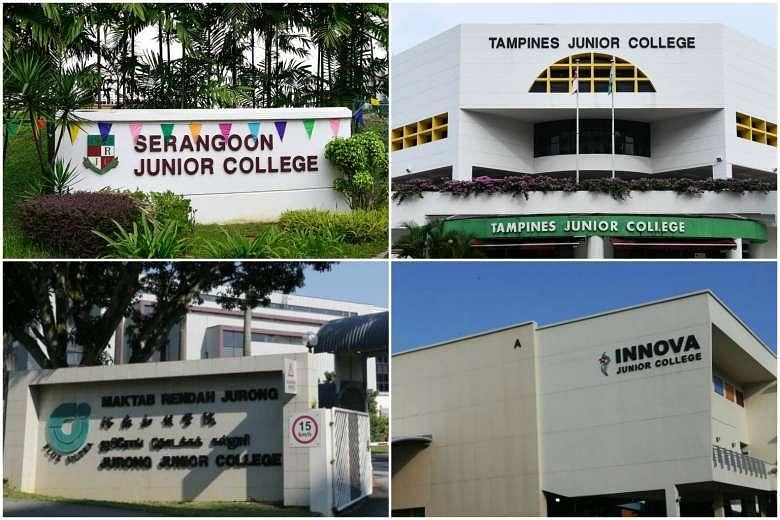SINGAPORE - Singapore should expect greater diversity of choice when it comes to higher education even as student cohort sizes fall, Minister for Education (Higher Education and Skills) Ong Ye Kung said on Monday (May 8).
"Expanding our higher education pathways is not incompatible with decreasing cohort sizes. In fact, as our manpower and talent base reduces, it is even more important to uncover everyone's potential to the fullest through more diverse education pathways," he told Parliament.
Mr Ong was responding to a parliamentary question from Non-Constituency MP Daniel Goh, who asked how the planned reduction in the number of junior colleges (JCs) will affect the supply of A-level holders to universities.
By 2019, Serangoon, Tampines, Innova and Jurong JCs will be absorbed by Anderson, Meridian, Yishun and Pioneer respectively, cutting the number of JCs from 23 to 19.
Mr Ong acknowledged that falling cohort sizes will affect the number of A-level, as well as polytechnic graduates, going to university.
But this will be cushioned by the increase in cohort participation rate, which is the percentage of students in one cohort who will study for a degree at the local universities, from 35 per cent now to 40 per cent in 2020.
Still, the number of students admitted to local funded universities will fall by 10 to 15 per cent by 2025. This year, about 19,000 students are expected to be admitted.
But Mr Ong said there is no issue of losing a critical mass of students, as Singapore has only five autonomous universities. The Singapore University of Social Sciences (SUSS) will become the sixth if Parliament passes the Singapore University of Social Sciences Bill later on Monday.
"Because university education is more specialised, there is also less need for critical mass. The Singapore University of Technology and Design (SUTD) for example, is doing very well as a university with a unique focus in design, admitting only 500 to 600 students a year," he said.
Dr Goh later asked if A-level education will "become a little bit more elitist because of the closing down of neighbourhood junior colleges".
Mr Ong replied that the cut-off point for entrance into JC remains the same.
"The fact that it's smaller actually means we have to put in even more effort to make sure it's more diverse so that everyone can fulfil their potential," he added.
"You look at cinemas now - (they are) getting smaller and fewer. But each cinema is showing a lot more titles. So I think it's the same logic. Falling cohort sizes and increasing diversity are not incompatible notions."


